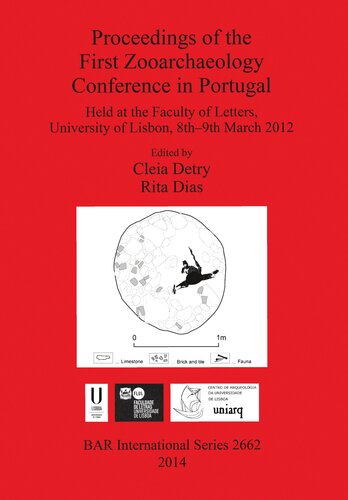

Most ebook files are in PDF format, so you can easily read them using various software such as Foxit Reader or directly on the Google Chrome browser.
Some ebook files are released by publishers in other formats such as .awz, .mobi, .epub, .fb2, etc. You may need to install specific software to read these formats on mobile/PC, such as Calibre.
Please read the tutorial at this link: https://ebookbell.com/faq
We offer FREE conversion to the popular formats you request; however, this may take some time. Therefore, right after payment, please email us, and we will try to provide the service as quickly as possible.
For some exceptional file formats or broken links (if any), please refrain from opening any disputes. Instead, email us first, and we will try to assist within a maximum of 6 hours.
EbookBell Team

4.8
64 reviewsThis volume comprises 15 articles - the result of presentations made at the first International Conference on Zooarchaeology which took place in Lisbon in 2012. This meeting was attended by researchers - PhD students, archaeologists, biologists and zooarchaeologists - studying animal remains from Portugal's past. The papers in this book comprise a wide range of themes and include material from various periods; the common denominator being their Lusitanian origin. The articles describe faunal remains dating from the Paleolithic to modern times and from various aspects, some purely zooarchaeological, others archaeological and combine a spectrum of methods of study, classical osteology/zooarchaeology, ancient DNA, and even written sources. The volume starts with an article about Paleolithic artefacts, followed by articles about Mesolithic Muge and Algarve and ends the prehistoric period with a discussion about Bronze age animal remains. The Roman period is also well represented as the Medieval and Modern periods, both with specific site-studies and other more wide-ranging ones that summarize work carried out in specific geographical areas. The volume finishes with an article about the situation of Zooarchaeology as a profession and scientific area of study in present-day Portugal. Here we are presented with the latest results from the younger generation of Portuguese zooarchaeologists as well as several more experienced in this field. With this small volume it is hoped to put Portuguese zooarchaeology 'on the map'.